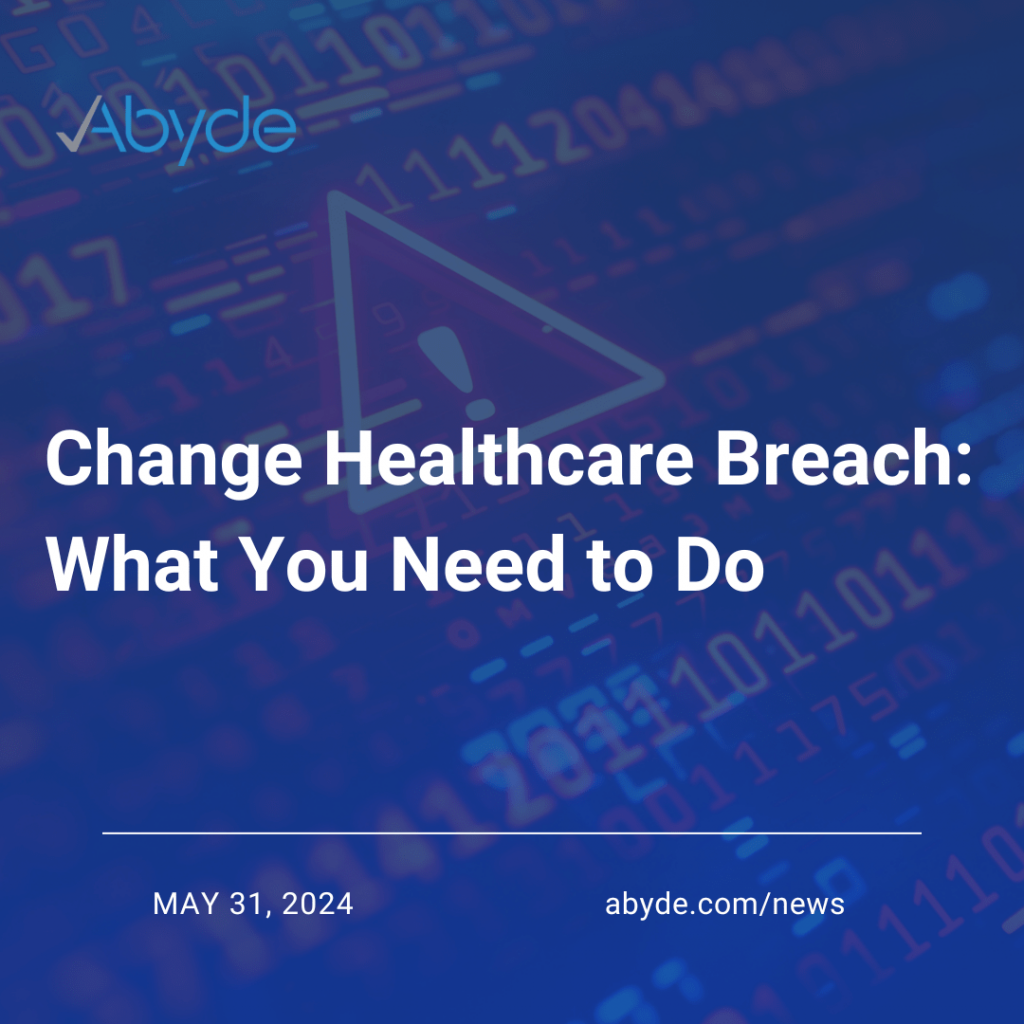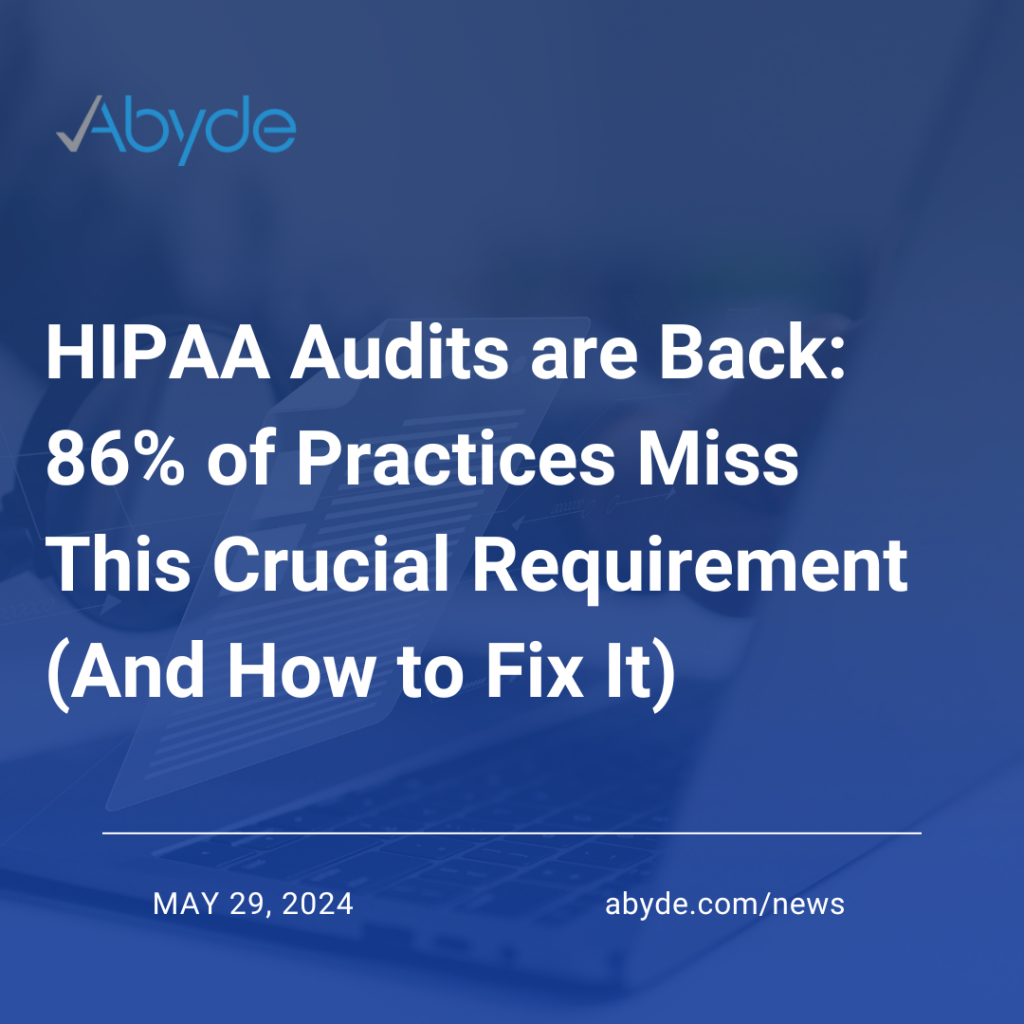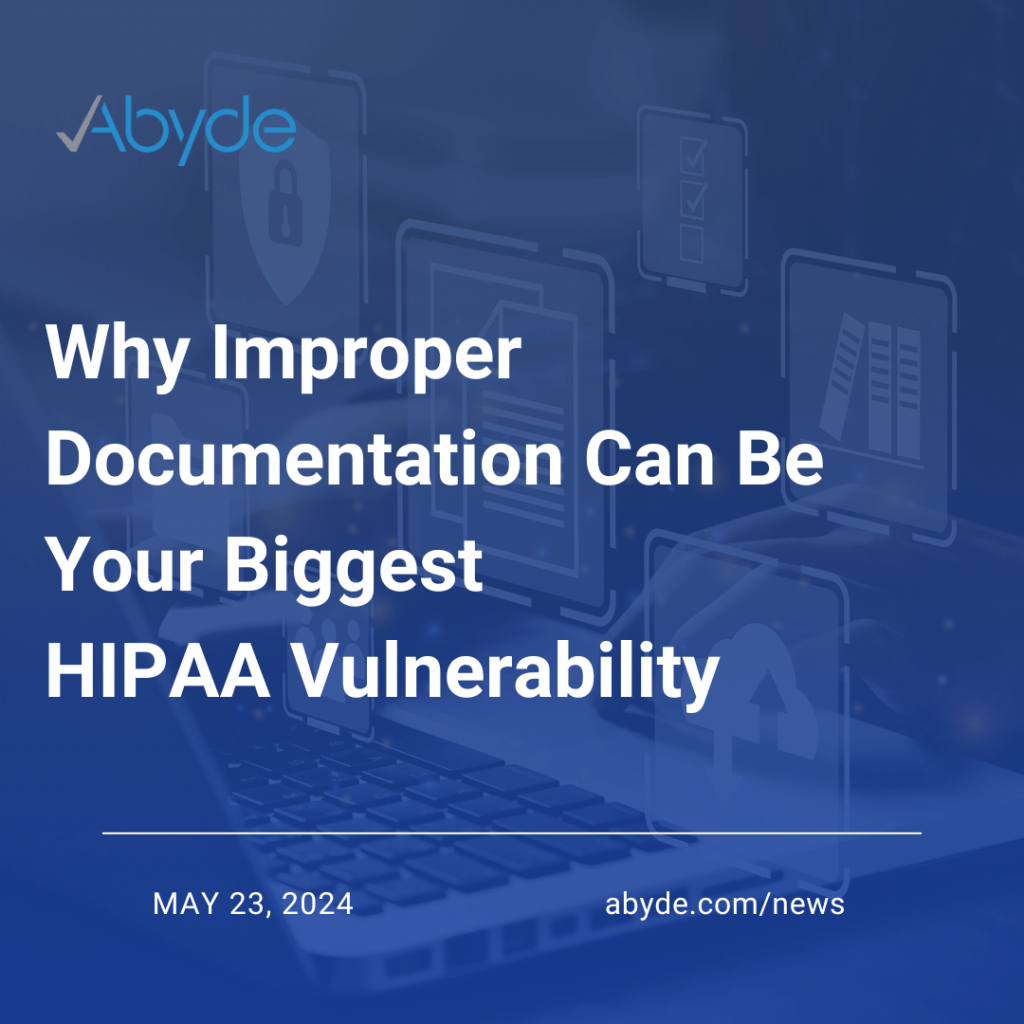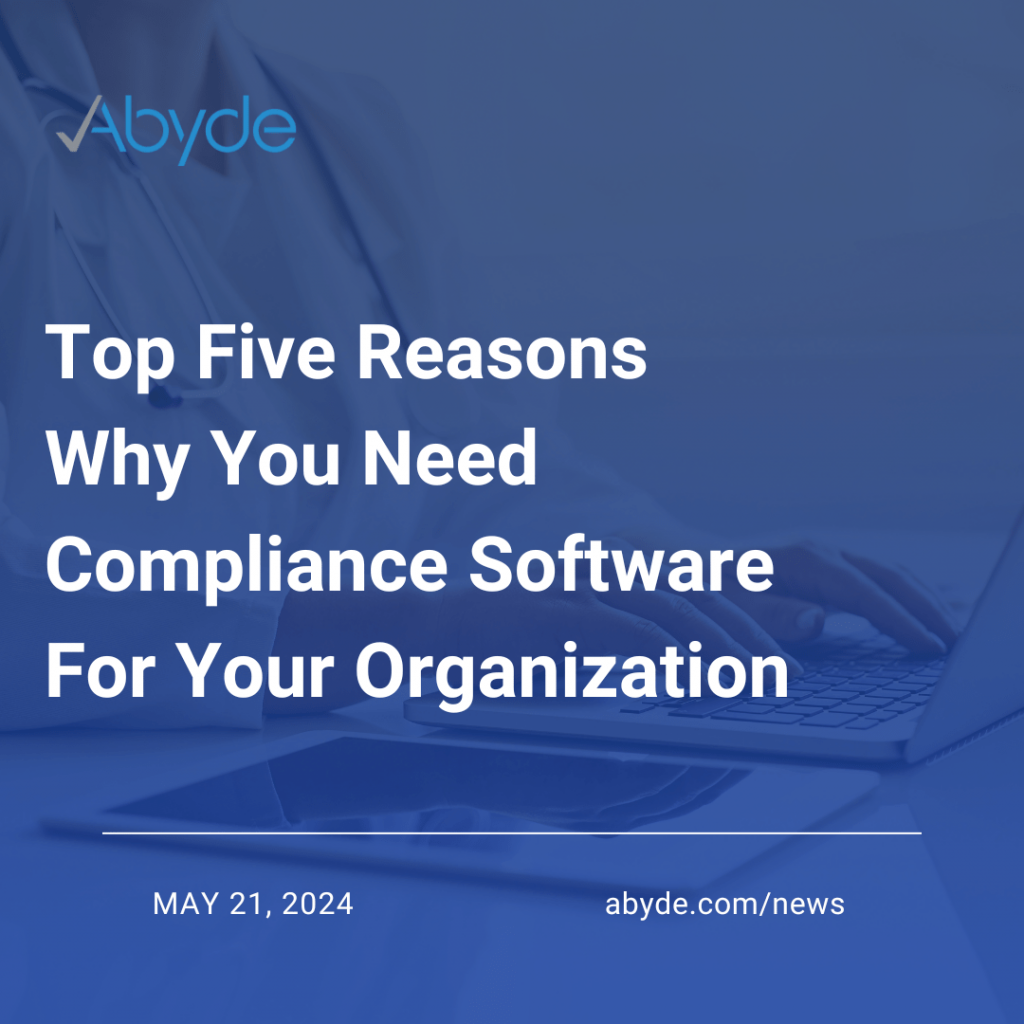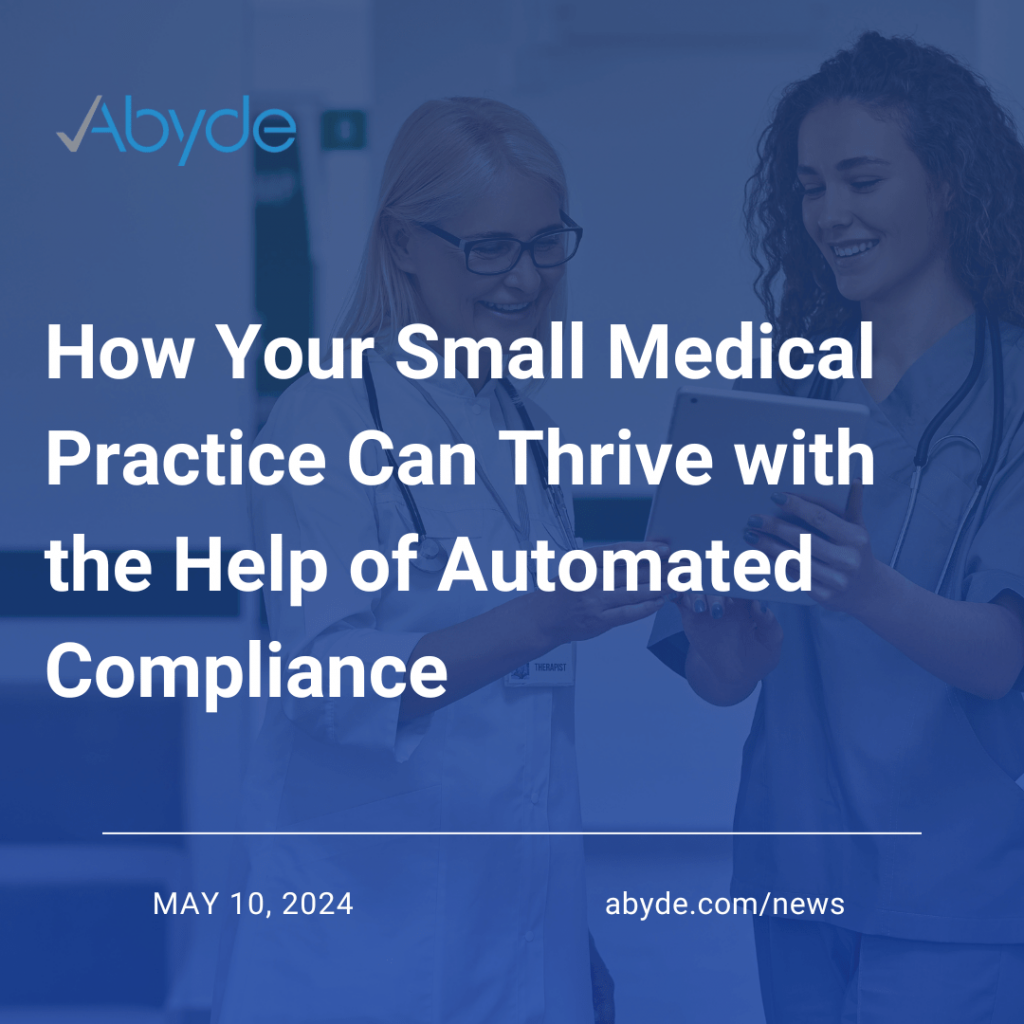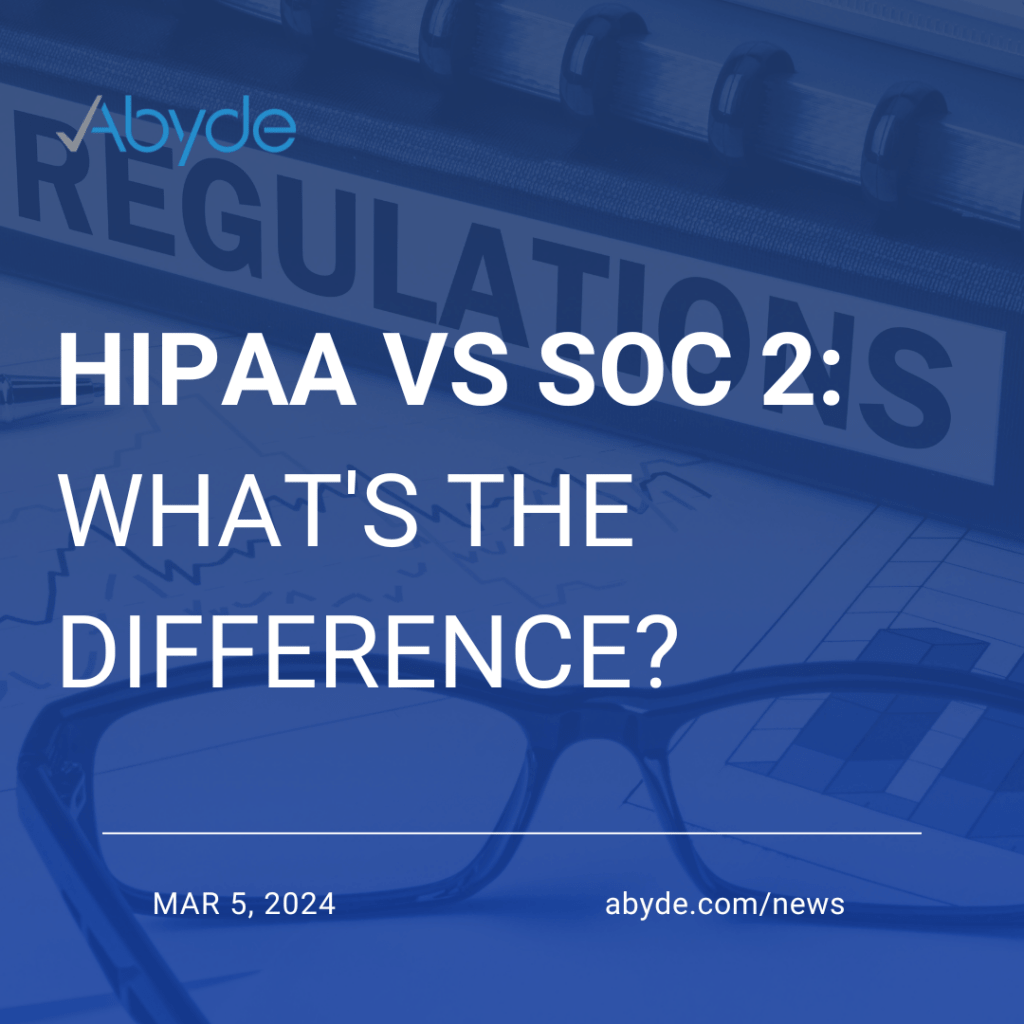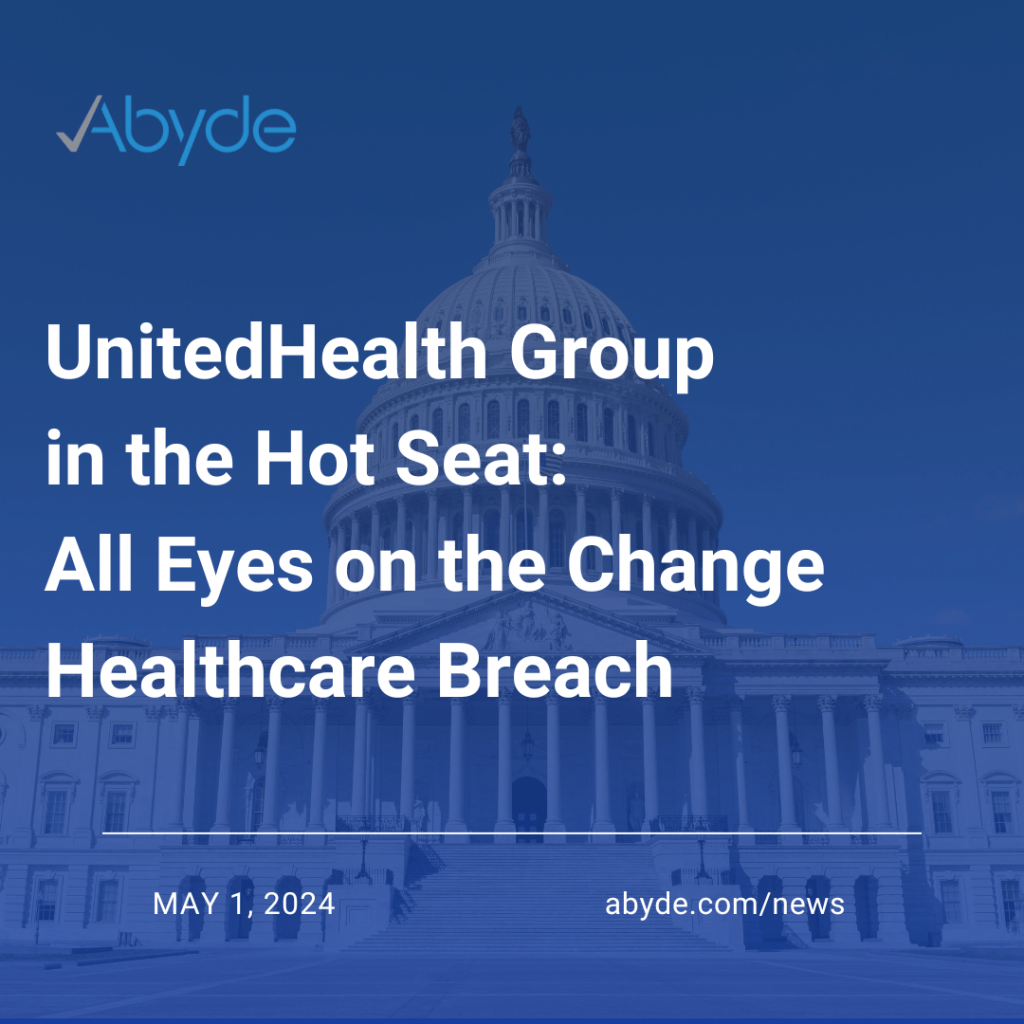May 31, 2024 Since February, the Change Healthcare ransomware attack has dominated headlines in the medical industry, cited as likely the most significant breach ever in the U.S. health system. To quickly recap, a group of malicious hackers infiltrated Change Healthcare’s systems in February. The hackers had access to the system for nine days before infecting systems with ransomware on the 21st. When it was realized Change Healthcare’s systems were compromised, its systems were immediately disconnected to mitigate risks. This attack not only jeopardized patients’ Protected Health Information (PHI) but also caused detrimental impact on the healthcare industry at large. Change Healthcare processes 15 billion healthcare transactions annually. With these systems down, healthcare providers continue to struggle with basic processes, like filling prescriptions and getting paid through insurance claims. The latest update on the Change Healthcare breach has reached Capitol Hill. Andrew Witty, CEO of UnitedHealth Group, the parent company of Change Healthcare, testified at two congressional hearings on May 1st. At these hearings, the cause of the breach was acknowledged: a lack of multi-factor authentication prompts when logging into internal systems. Additionally, while Witty confirmed that the exact scope of impacted patients is unknown, it is expected to be very severe. One-third of Americans could be affected by this cyberattack. Although Change Healthcare’s lack of security protocols caused the catastrophic breach, it is still your practice’s responsibility to notify impacted patients. What You Need to Do The Office for Civil Rights (OCR) is still investigating the magnitude of this cyberattack, but guidance has been released. First, Change Healthcare is notifying stakeholders impacted by the breach. This includes Covered Entities and Business Associates. Business Associates must notify Covered Entities if their business is affected, and the responsibility to inform patients ultimately falls on Covered Entities. The Breach Notification Rule under HIPAA details what information needs to be shared with patients, including suspected dates the data was breached, what PHI was involved, and the next steps. Once it’s known that this breach impacted your patients, it’s vital to notify affected individuals without unreasonable delay and to inform the HHS. The media must also be notified if five hundred or more patients were affected. After this significant cyber attack, reviewing your risks and vulnerabilities is crucial. If a vast organization processing up to $2 trillion in medical claims annually can be hacked, so can your practice. Ensure standard security protocols, like multi-factor authentication, are in place to mitigate the risk of breaches. When it comes to your HIPAA compliance programs, securing your data is critical. For example, Abyde’s cloud-based software features an intuitive Security Risk Analysis (SRA) and ongoing compliance review to quickly identify and address risks to keep your practice’s sensitive data safe. As this breach is still under investigation, Abyde will keep Covered Entities and Business Associates up-to-date on the latest developments. Visit the HHS FAQ page on the Change Healthcare breach here. To learn more about software solutions to ensure protected compliance for your practice, schedule an educational consultation here with a compliance expert.
HIPAA Audits are Back: 86% of Practices Miss This Crucial Requirement (And How to Fix It)
May 29, 2024 The random HIPAA audits are officially back. Melanie Fontes Rainer, Director of the Office for Civil Rights (OCR), confirmed in a recent interview that the OCR is proactively conducting audits as part of a series of improvements. Following a five-year hiatus from proactive audits, the Office for Civil Rights (OCR) has been updating key HIPAA regulations. For instance, the OCR is also releasing an updated Security Rule by the end of the year to better reflect innovation since its original publication over twenty years ago. As the OCR continues to advance HIPAA rules, it’s vital to be prepared with a foundation of a compliant practice. At the base of this foundation is the Security Risk Analysis (SRA), a commonly missing HIPAA requirement. During the last round of proactive audits, 86% of Covered Entities could not show a properly documented SRA for their practice. What is a Security Risk Analysis (SRA)? The OCR defines an SRA as “an accurate and thorough assessment of potential risks and vulnerabilities to confidentiality, integrity, and availability of electronic Protected Health Information (ePHI).” The SRA is focused on protecting ePHI. It is a continuous requirement and needs to be updated when significant changes occur to your practice. It’s best practice to complete the SRA at least annually. An SRA is a complete evaluation of how PHI is protected. Questions include encryption practices, staff training, disposal of PHI, and more. Why is the SRA Important? The SRA documents proof that a practice has appropriate safeguards to protect sensitive patient data. It requires practices to conduct self-audits and identify risks and vulnerabilities before they become issues. This means anticipating vulnerabilities and implementing preventative measures before sensitive data is compromised. If followed correctly, the SRA acts as a vital line of defense, helping prevent data breaches, ensuring patient privacy, and building trust within the healthcare system. How do I complete an SRA? Completing an SRA is crucial for protecting sensitive patient data. The good news is that several approaches are available, each with varying costs and timelines. Before starting an SRA, it is essential to have an HCO, or HIPAA Compliance Officer, in place to manage HIPAA documentation and the SRA process. You can complete the SRA internally using online resources provided by the OCR. While there are free resources, this option is less intuitive than others, can be time-intensive, and requires significant team effort. Manual audits can take weeks to months to complete. You could also hire an external auditor or consultant to complete your SRA. Hiring a consultant might reduce the burden on your team but can be costly. The average price of an external auditor is in the thousands, with some costing upwards of $20,000. Additionally, these external audits can take months. An alternative option is intelligent compliance software, which provides significant benefits for meeting the SRA requirement and more. It allows you and your practice to navigate the SRA cost-effectively and efficiently. While a manual audit usually takes weeks to months, an audit assisted by software can be completed in significantly less time, simplifying the SRA process, and saving your practice substantial costs and assuring protection. Why Should I Use Compliance Software? As the Security Rule is updated, your compliance program also deserves an upgrade. Intelligent software solutions can help you easily fulfill complex HIPAA requirements, prepare for potential risks and vulnerabilities, and protect patient data. Many organizations overlook the SRA, but software solutions can streamline the process and protect your practice. To learn more about Abyde’s innovative software solutions, schedule an educational consultation.
Why Improper Documentation Can Be Your Biggest HIPAA Vulnerability
May 23, 2024 Secure documentation is essential in any industry. However, in healthcare, there’s even more on the line. Ensuring HIPAA compliance with proper patient data care is crucial. Let’s explore how it works. Required Documentation for HIPAA HIPAA requires Covered Entities (CEs) and Business Associates (BAs) to document how they manage Protected Health Information (PHI). Your organization needs to document its compliance process to be HIPAA compliant. This process includes your initial Security Risk Analysis, identifying risks and vulnerabilities, completing training, and any partnerships your organization might have with BAs. Under the Breach Notification Rule, any breach must be documented and reported, and affected patients must be notified. Written proof is required that your organization takes appropriate measures to protect patient data, especially when dealing with PHI. Additionally, your practice’s policies and procedures must be easily accessible and personalized for your location. Personalized documentation of policies, like a Disaster Recovery Plan, details the best course of action for your employees and their roles if a situation arises. What Happens if Documentation isn’t in Place? When documentation isn’t in place, it can lead to fines. Proper documentation is crucial for HIPAA compliance. HIPAA mandates personalized documentation of your practice’s compliance program, which identifies your practice and shows that appropriate measures are in place to secure PHI. The Business Associate Agreement (BAA) is a legally binding contract required for Covered Entities to establish with their Business Associates. The BAA outlines each party’s responsibilities for securing PHI. This documentation is vital for ensuring compliance with HIPAA regulations and identifying duties in the relationship. Many organizations have faced fines for neglecting this essential documentation. For instance, the Center for Children’s Digestive Health was fined $31,000 for lacking a BAA. While thorough documentation practices are essential, many practices using manual methods often fall short, leading to HIPAA violations. At the latest HIPAA Summit, the OCR stated that some of the most common recurring HIPAA violations include incorrect documentation, especially missing BAAs. It’s a simple task to ensure accountability, but it’s necessary. How Intelligent Software Solutions Can Help Documentation is essential but can be overwhelming. Compliance software simplifies the process, saving countless hours and protecting your practice. Innovative cloud-based solutions enable you to auto-generate and manage your policies and procedures quickly. You can create your documentation dynamically in seconds, ensuring your practice has the most up-to-date documentation. BAAs, a commonly overlooked document, can also be managed within software. Drafting the agreement and sending the documentation through the software simplifies the process. To learn more about how Abyde can streamline and simplify your HIPAA compliance, please schedule an educational consultation.
Top Five Reasons Why You Need Compliance Software For Your Organization
May 21, 2024 As a healthcare provider, staying updated on evolving regulations is crucial to protecting your practice, its reputation, and its patients. But complying with regulations can be daunting; even the most diligent teams face challenges. In light of the recent Change Healthcare Breach, it’s more important than ever for practices of all sizes to reevaluate their compliance approach. This is where automated compliance software provides an excellent solution to streamline, simplify, and secure the process. This blog post explores the benefits of intelligent software compliance programs for protecting your practice in place of manual compliance efforts and how software can help you succeed. Top Five Reasons Why You Need Compliance Software 1: Automate Tasks & Reduce Manual Work An average manual HIPAA audit can take anywhere from several hours to several months to complete. When patient care is the focus, this is wasted time. Intelligent, user-friendly software assists practices in understanding the process and managing their time efficiently. With algorithms running the program, employees can dedicate more time to patient care, optimize workflow, efficiently schedule appointments, and reduce wait times. 2: Avoid Fines with Compliance Software The average cost of a HIPAA fine in 2023 was $321,269. In comparison, investing in software is much less expensive than a potential fine, saving practices hundreds of thousands of dollars with preventative measures. Ensuring ongoing compliance is the key. Software simplifies necessary processes to ensure compliance, potentially reducing common infractions that result in fines and penalties. 3: Effectively Manage Risk HIPAA is highly detailed and demanding, requiring practices to maintain meticulously documented and ongoing compliance programs. With centralized documentation, integrated Security Risk Analysis (SRA), and automated ongoing risk monitoring, risk can be mitigated. Software can dynamically generate policies and reporting, streamlining cumbersome processes. With thorough reporting, organizations can make informed decisions and proactively identify gaps. Stronger risk management protects practices against threats to their reputation, finances, and operations. 4: Develop a Thorough Understanding of Compliance Understanding the regulations is essential for maintaining HIPAA compliance. Access to comprehensive training and up-to-date resources to ensure compliance is another advantage of software solutions. Regular training establishes a foundation for your organization to foster a culture of compliance. Software companies also provide dedicated support teams to assist your practice with questions. 5: Stay Ahead of Regulations The Office for Civil Rights is always improving and updating HIPAA rules to keep up with the latest technology and practices. Melanie Fontes Rainer, the director of the OCR, recently discussed the HIPAA Security Rule, stating that HIPAA is technology-neutral and scalable, but it doesn’t reflect how we receive healthcare today. This is particularly important considering the OCR has recently issued new HIPAA and online tracking guidelines. As technology advances, so does regulation. Changes in regulations are challenging to keep up with. Alternatively, software is regularly updated to align with compliance changes, simplifying reviews of the evolving healthcare landscape. You can minimize risk and stay compliant by receiving the latest HIPAA updates from your software provider. How Abyde can help Manually managing HIPAA compliance can be risky and error-prone, leaving your practice exposed. Instead, you can easily navigate requirements and safeguard your practice while saving significant hours and costs. All while promoting a culture of compliance through staff education on regulations and requirements, it’s all possible with software by Abyde. To learn more about ensuring your practice is compliant, email info@abyde.com and schedule an educational consultation.
How Your Small Medical Practice Can Thrive with the Help of Automated Compliance
May 10, 2024 We’re celebrating National Small Business Day by highlighting some of the hardest-working individuals in the industry who serve patients day in and day out. Small medical practices account for a significant portion of the healthcare system, with over half of physicians working in practices with ten or fewer doctors. Additionally, many physicians own their practices, with 44% being self-employed. Running your small medical practice comes with great benefits but unique challenges. Read more as we discuss the common hurdles and how intelligent software-based compliance solutions work for your small practice. Small Practice Challenges: Cost Small medical practices operate with fewer resources. Cash flow and high costs are common dilemmas for small medical practices compared to hospitals. With fewer resources, small practices can be more vulnerable when challenges arise. For instance, as seen with the Change Healthcare breach, over 78% of surveyed small medical practices cited facing difficulties, with 31% unable to run payroll. While navigating high operating costs, the annual average ranges from $600,000 to $800,000, finding affordable yet effective resources is imperative. Small Practice Challenges: Administrative Burdens Administrative work can significantly impact the success of a practice. Time is valuable, especially when the office staff is a few people wearing many hats. Without the right tools, administrative tasks take a significant portion of a healthcare employee’s day. For instance, the average doctor spends almost 10 hours weekly completing clerical tasks, or roughly one-fifth of working hours. Maintaining complex and time-consuming HIPAA and OSHA compliance are examples of such tasks. Having comprehensive compliance programs is vital to being compliant. Without an automated solution, some administrative tasks include writing thorough policies and procedures, manually tracking staff training, and maintaining organized compliance documentation. Small Practice Challenges: Burnout Burnout is a common experience in healthcare. More than 90% of doctors have felt the impact of burnout. Juggling a demanding healthcare role with the responsibilities of running the practice itself can take a significant toll if not managed correctly. Administrative tasks contribute to this stress, with 64% of doctors noting clerical requirements as a significant stressor. HIPAA and OSHA compliance can be overwhelming, and the consequences can be severe. When fines can cost your small practice millions of dollars, finding a solution to alleviate compliance stress is essential. How Abyde Can Help Running a small medical practice can be difficult, but it is a testament to your dedication to your patients. Abyde understands that you want to spend more time with your patients, and automating HIPAA and OSHA compliance is a path to that goal. Our automated,cloud-based compliance software is for healthcare professionals like you seeking a secure and simplified approach to managing compliance. With Abyde’s easy-to-use solutions, your practice can save time and money, mitigate risk, and ensure you are always up to speed with the latest compliance requirements. To learn more about Abyde’s solutions, email info@abyde.com or schedule an educational consultation with one of our experts here.
HIPAA vs SOC 2: What’s the Difference?
Students must be equipped with the skills to navigate the digital world effectively, including using computers.
Strong Passwords, Strong Protection: World Password Day
May 2, 2024 Happy World Password Day! To celebrate, let’s refresh your password etiquette. With the most recent updates on the Change Healthcare breach, you don’t want to miss this opportunity to do some compliance housekeeping! Let’s dive into how to ensure your passwords are HIPAA-compliant, keeping Protected Health Information (PHI) secure. Best Practices First, let’s say ‘sayonara’ to ‘Password123!’. When it comes to creating a secure password, length is crucial. Forget complex passwords with limited characters. Aim for at least 8 characters, using a mix of uppercase and lowercase letters, numbers, and symbols. This creates a longer and more challenging code to crack. Next, create passphrases instead of passwords. Consider using easy-to-remember passphrases instead. A good example would be including your favorite book or restaurant in a sentence. For example: “MyFavoritePlaceToE@tIsThaiGardenOn46thSt!” Lastly, make your passwords unique across different accounts. Beyond the Password Two is Better than One Now that’s settled, let’s dig into the additional security steps to keep your practice safe. Don’t shy away from Multi-Factor Authentication (MFA); it’s your friend. Enable MFA wherever possible, adding an extra layer of security by requiring a second verification step, like a code from your phone, to access accounts. Imagine MFA as a second line of defense in password security. When not used properly, it can leave an open door for cyber attacks. We’ve seen this play out in the news recently. On May 1st, Andrew Witty–Chief Executive Officer of UnitedHealth Group–testified in front of Congress regarding the Change Healthcare breach. Witty stated that the attackers successfully compromised a stolen user ID and passwords due to a lack of multi-factor authentication. This attack has cost Change Healthcare a whopping $870 million… and counting! To think, this whole issue could have been avoided if they took 5 minutes out of their day to implement practical password protocols… Password Powerhouse Consider ‘hiring’ a password manager! Using a password manager can provide peace of mind, knowing your passwords are secure. These tools generate strong, unique passwords and securely store them, eliminating the need to remember countless complex combinations. Just remember to use a strong master password for the manager itself! Finally, don’t forget to update your passwords at least three times a year and immediately if you suspect a security breach or phishing attempt. What’s Next? Think of password etiquette like flossing your teeth – not the most fun activity, but neglecting it can lead to painful consequences. That’s where Abyde can help simplify your practice’s everyday compliance needs. Abyde’s software offers an all-in-one suite of compliance resources with password and multi-factor authentication best practices training, on-call compliance experts, and much more. To learn more about compliance for your practice, schedule an educational consultation with one of our experts today!
UnitedHealth Group in the Hot Seat: All Eyes on the Change Healthcare Breach
May 1, 2024 Over the last several months, your friends at Abyde have kept you updated on the latest in the Change Healthcare Breach. Since February 21st, this breach has held the healthcare industry captive, likely the most significant healthcare data breach in the United States ever. Change Healthcare, nestled under the UnitedHealth Group umbrella, processes about 50% of U.S. medical claims, is still picking up the pieces. If you work in healthcare, you feel the sting of the attack. Almost all hospitals reported financial damages because of the attack. So, how did we get here? You’re getting answers, as CEO of UnitedHealth Group, Andrew Witty, is set to testify in front of two congressional panels today. Don’t worry, we’re not going in blind! While Witty might be on center stage today, a written testimony has already been released. Stay tuned because we’re decoding this testimony and answering your burning questions. Pack your bags! We’re taking a quick trip to the Capitol! Party Crashers This compliance catastrophe began on February 21st, with the BlackCat hacking group infecting Change Healthcare’s systems with ransomware. However, the team of malicious hackers had been plotting for over a week, being in Change Healthcare’s systems for nine days before the attack. How did they get in? It wasn’t a Mission Impossible stunt, avoiding lasers and jumping between buildings, but a simple case of compromised credentials. Using a stolen login, the black-hat hackers could log into a Change Healthcare application portal and remotely access desktops. This portal didn’t have a standard security protocol: multi-factor authentication. Multi-factor authentication (MFA), like a code sent to your phone before logging in, is a typical security standard for protecting sensitive data. Implementing technical safeguards, like MFA, falls under the HIPAA Security Rule. Mopping up the Mess While Change Healthcare is no stranger to hacking attempts – thwarting 450,000 intrusions a year – once the ransomware was identified, Change Healthcare sprung into action. According to Witty, the Change Healthcare team immediately severed connectivity with the data centers to avoid the spread of ransom. Change Healthcare started from the bottom up, rebuilding the foundation of its technology infrastructure, replacing thousands of laptops, implementing new credentials, and new servers with the help of Tech powerhouses like Amazon and Google. As of today, the ransomware only impacted Change Healthcare and none of UnitedHealth Group’s other organizations. Witty also admitted to meeting ransom demands, saying it was one of the toughest decisions he’s ever had to make. What’s Next? These uninvited party crashers have put the UnitedHealth Group in hot water. These congressional hearings are just the tip of the iceberg for the medical titan. Here at Abyde, we’re keeping a close eye on things, and you can bet we’ll keep you in the loop through our blogs and social media on the latest in these hearings. Want to stay on top of all things compliance? Follow us and watch for our This Week in Compliance series – it’s your one-stop shop for compliance info!
